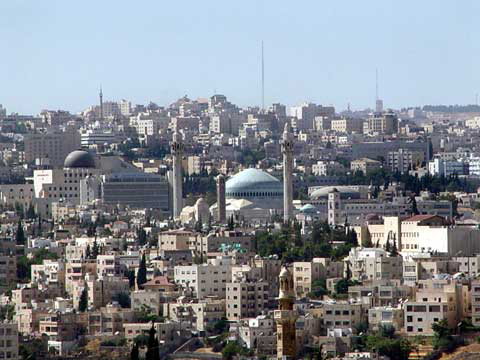The Jordanian Muslim Brotherhood joined with political and social groups across the country Tuesday to pressure Amman to implement sweeping democratic reforms, dpa reported.
In a so-called national reform congress held at the Islamist movement's Amman headquarters late Tuesday, some 35 political, social and tribal groups agreed to launch a National Popular Movement Council - an umbrella organization activists say will serve as an "alternative parliament."
"We are the true parliament...we are the true representatives of the Jordanian people," said Hamam Saeed, leader of the Jordanian Muslim Brotherhood.
During the meeting, various political and social groups - many of them longtime ideological rivals - agreed to unite to pursue common reform goals, namely constitutional amendments transferring King Abdullah II's authority to appoint governments.
"Today marks the start of a new movement, a new drive and the day Jordanians finally take back their political rights," said Salem Fallahat, former head of the Jordanian Muslim Brotherhood.
The council - which includes leftist, nationalist and Islamist parties - marks the largest union of political and social forces in Jordan in more than two decades.
The council also represents the first wide-scale effort to unite the dozens of regional grass-root "popular movements" that have emerged across Jordan since the launch of the Arab Spring last year.
According to activists, one of the council's first tasks will be to weigh a nationwide boycott of upcoming parliamentary elections, which King Abdullah has highlighted as key to the country's reform process.
Opposition groups have vowed to boycott polls if authorities fail to introduce a new elections law that breaks away from a one-person, one-vote electoral system that has resulted in rubber-stamp parliaments dominated by regime loyalists.
Activists expect the council to re-energise Jordan's protest movement, which observers say has been beset by internal divisions and a lack of a unified message that has long prevented reformers from gaining popular support.






